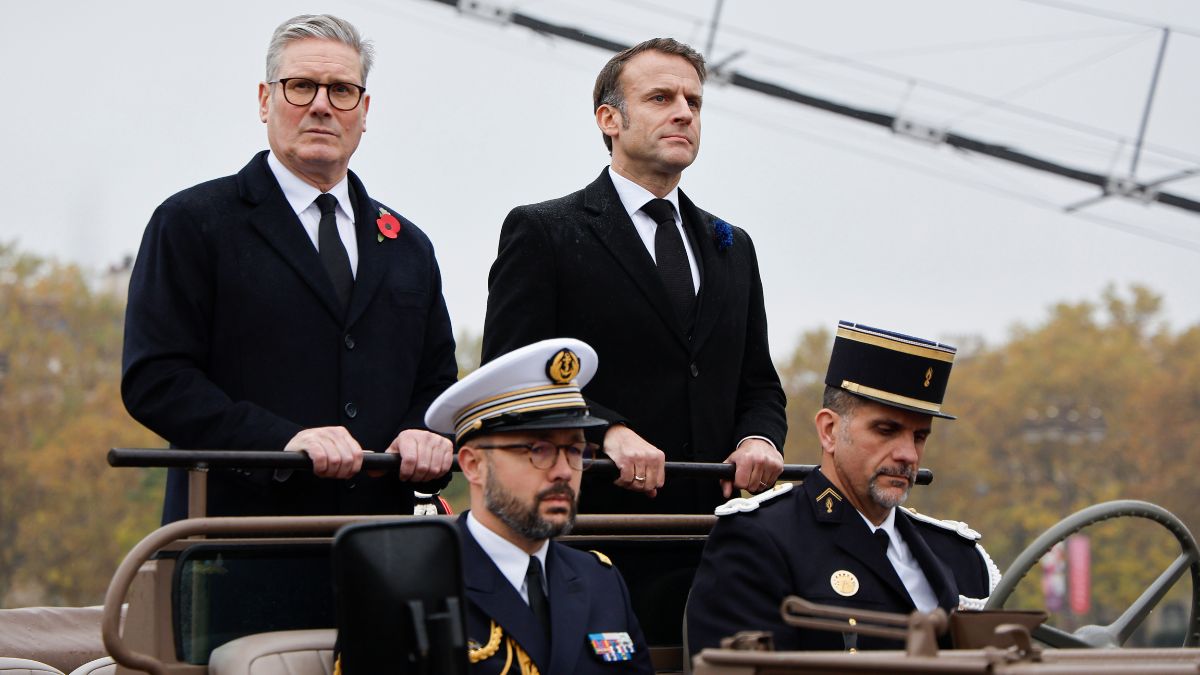Even as the French-British reset is supposed to be the top agenda of President Emmanuel Macron’s state visit starting Tuesday, US President Donald Trump will be on the back of the head of both the leaders.
Macron has beaten Trump to be the first to arrive in the United Kingdom on a state visit this year — the invitation of a state visit to Trump was a big part of British Prime Minister Sir Keir Starmer’s charm offensive during his visit to the United States in February.
In recent months, the UK and France have formed a united front at the world stage whether it is handling of Russian war on Ukraine or the West Asia crisis. The two leaders have led the ‘coalition of the willing’ initiative to put up a European peacekeeping or assurance force in Ukraine in case of a peace deal.
This is a far cry from the tensions of the Brexit era when the two countries often found themselves jabbing each other.
Macron and Starmer are expected to deepen the cooperation on defence, reach an agreement on tackling illegal immigration through the English Channel, and hold talks on nuclear collaboration during the visit. The divergences, such as the British soft handling of Trump’s compared to Macron’s firmer approach and the British insistence on US security guarantees for any ‘coalition of the willing’ force in Ukraine, will be discussed in private and are unlikely to make headlines.
Despite such increasing bonhomie, however, Starmer is unlikely to replace change the stance taken so far on Trump and the importance he has given to the US-UK relationship — described as a ‘special relationship’ for generations.
Impact Shorts
More ShortsTrump to remain Starmer’s priority — even with UK-France reset
Starmer has made it a point to handle Trump softly and avoid taking a firm stance like Macron.
In sharp contrast to Starmer, Macron has treated Trump as an equal and has not shied from correcting him often, critiquing him occasionally, and challenging him when needed.
For example, when Trump was rambling in their White House meeting about the lack of European assistance to Ukraine, Macron calmly put a hand on Trump’s arm and laid the figures to stress that Europe had been doing his job. He also went to Greenland to stand with Denmark in the wake of Trump’s threats of invasion and annexation of the island.
Even though Macron is bound to be frustrated by Starmer’s soft approach to the Trump, Starmer is unlikely to change his position.
The two leaders have also differed on the approach to Trump’s trade war. While Starmer has already struck a trade deal with the United States, Macron has called for firmer negotiations on part of the European Union (EU) for any EU-US deal.
A former British diplomat told Politico that Macron had “done some stroking but not as much as we have” when it comes to Trump’s ego. The diplomat described Starmer’s soft approach to Trump as “shameless but necessary”. The indication is clear: Starmer is unlikely to act firm and risk creases in the smooth relationship.
Even as his and Trump’s positions on the Russian war on Ukraine are poles apart, Starmer has been cautious in addressing the differences. After Trump and his deputy JD Vance ambushed Ukrainian President Volodymyr Zelenskyy at the White House and kicked him out of the White House after berating him on live television, nearly every European spoke within hours in support of Zelenskyy. Starmer, on the other hand, worked the phones privately and spoke to both Trump and Zelenskyy in an effort to calm the tensions.
Different approaches for common benefit
Instead of Trump affecting the UK-France reset, the reset along with different approaches regarding Trump may work towards improving the standing of both the countries regarding Trump and even Russia.
The UK-France reset sends a signal to both Trump and Russian leader Vladimir Putin that both the countries are like-minded and “there is no ideological warfare between them" and that “core values and principles are deeply shared, and they are closely tied when it comes to defending Ukraine and the continent and upgrading their military capabilities while increasing defence spending”, Sebastien Maillard, a special adviser to the Jacques Delors Institute, told Guardian.
Maillard further said that the reset between the two nations is the most natural thing.
“The geopolitical landscape has changed and made it more compelling for both sides to make up. At a time of tremendous, almost earth-shattering movements in the international order, it’s a way for both countries —who are permanent members of the UN security council, have nuclear deterrents and the same level of diplomatic and military outreach— to cling to an order based on international law,” said Maillard.


)

)
)
)
)
)
)
)
)



